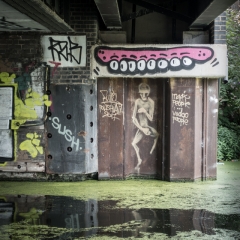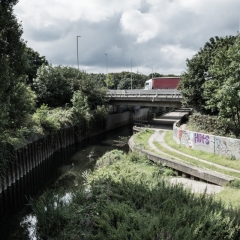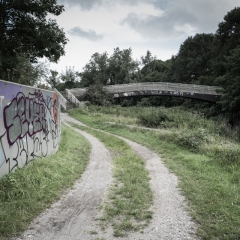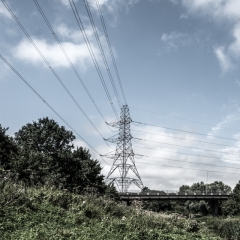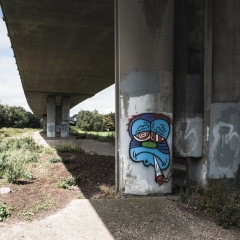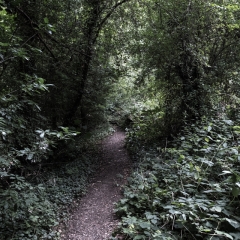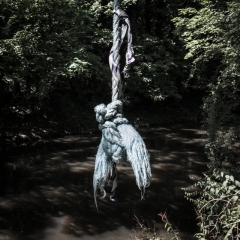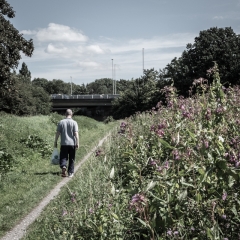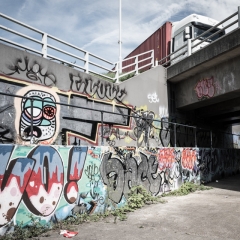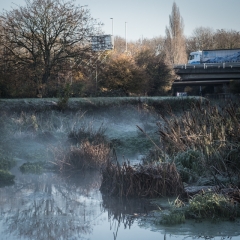This ‘park’ comprises of interconnected, overgrown and largely neglected spaces running alongside and beneath three major roads in East London. Daytime activities are mundane, nighttime activities furtive. A defining feature, and a key challenge in giving a sense of the place, is the noise from the roads, which, resisting visual and material boundaries, sweeps across the surrounding urban areas. My intention is to explore the relationship between visual, audio and textual (re)presentations in conveying a sense of place and the transition/transformation from day to night. Initial images are relatively banal.
A possible direction for development is to place work from this context alongside subsequent studies of similar ‘non-places’ and ‘edgelands’ in other places where I currently work: Singapore (where these spaces are developed by the post-colonial state as ‘green connectors’ for exercise, leisure and urban farming) and Australia (where colonial overwriting of traditional conceptions of land, access and ownership is opposed by Aboriginal communities). The very different conceptions of space of the government in Singapore and Aboriginal people in Australia both present a fundamental challenge to practice and discourse relating to public space in the UK.

